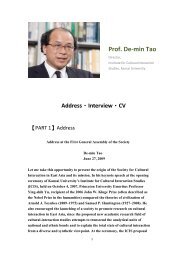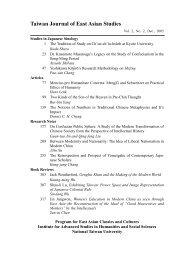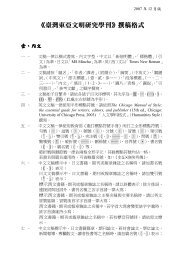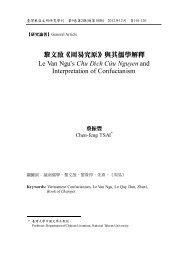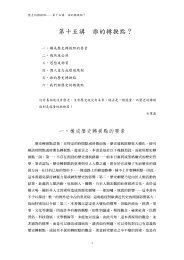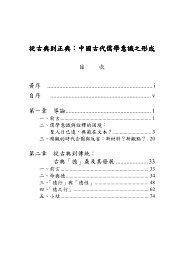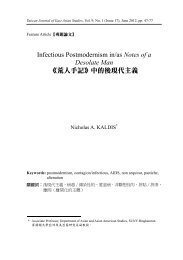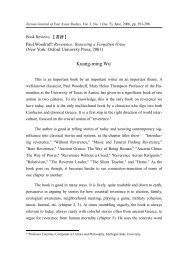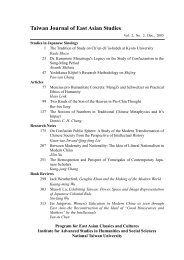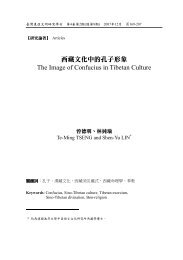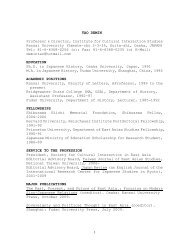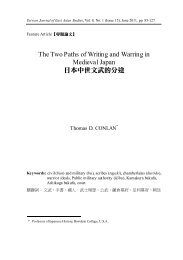臺灣東亞文明研究學刊 - 東亞經典與文化研究計畫 - 國立臺灣大學
臺灣東亞文明研究學刊 - 東亞經典與文化研究計畫 - 國立臺灣大學
臺灣東亞文明研究學刊 - 東亞經典與文化研究計畫 - 國立臺灣大學
Create successful ePaper yourself
Turn your PDF publications into a flip-book with our unique Google optimized e-Paper software.
Jörn RÜSEN Future-directed Elements of an European Historical Culture 223<br />
but we should proceed in a perspective originating in the peculiarity of our own<br />
cultural identity. Universal criteria of sense generation can open our perspective to<br />
different other perspectives constituted in different identities. This openness if<br />
effective in an intercultural discourse. This discourse is guided by the very<br />
universalistic elements we share across our differences and we feel committed to in<br />
the individual features of humankind in our cultural peculiarity. If we synthesize<br />
universalistic approaches and individualize tendencies in identity building the<br />
intercultural discourse about cultural difference will be guided by the rule of mutual<br />
recognition. It is on us to decide how powerful this rule can become. §<br />
§ A first version of this paper was presented at the conference on "Chineseness' and 'Europeaness' in<br />
East Asian Perspective" in September 2005. I am very grateful to Professor Chun-Chieh Huang for<br />
his invitation, for his inspiring questions and his commitment to an intercultural discourse in the<br />
humanities.<br />
xv



